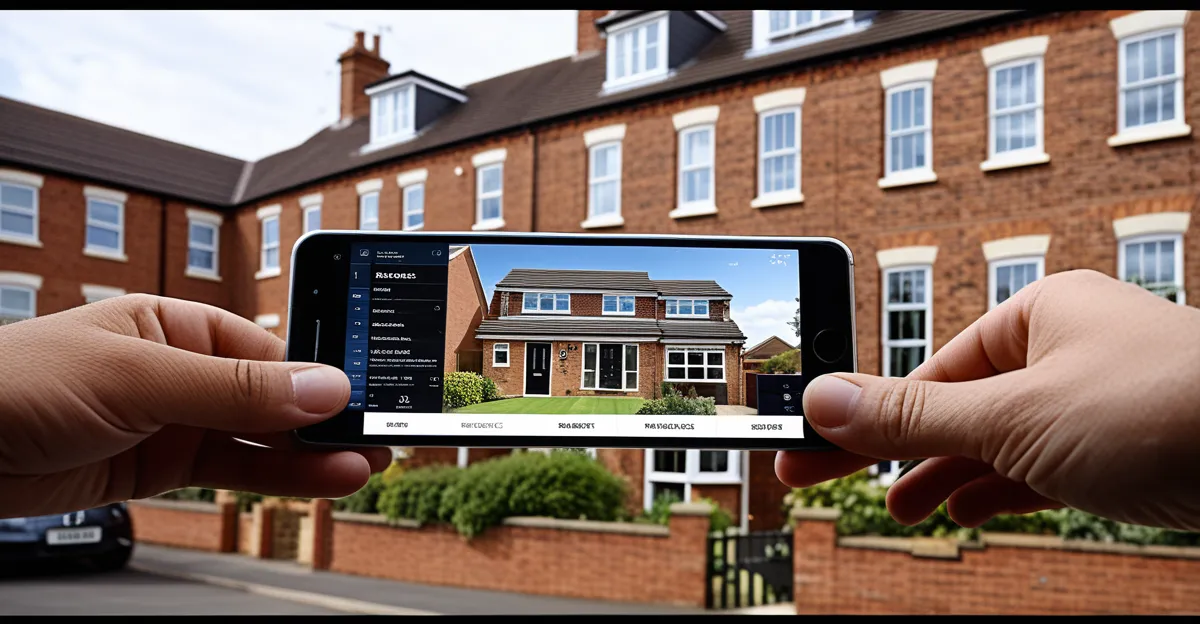Emerging Financial Technologies Shaping the UK Real Estate Market
Emerging financial technologies are profoundly transforming the UK real estate market by introducing innovative tools that increase efficiency and accessibility. Among these, blockchain, digital mortgages, and crowdfunding stand out as key fintech applications driving change.
Blockchain technology ensures secure, transparent property transactions by recording ownership and relevant data on immutable ledgers. This reduces fraud risks and streamlines verification processes, which benefits buyers, sellers, and lenders alike. Digital mortgages simplify the traditionally cumbersome mortgage process. By leveraging fintech platforms, applicants experience faster approvals and reduced paperwork, making property financing more user-friendly and accessible.
Also to read : How can real estate crowdfunding transform investment in the UK?
Crowdfunding platforms offer a novel way to invest in real estate, lowering entry barriers for individual investors by enabling fractional ownership. This innovation broadens participation in the UK property market, allowing smaller investors to diversify portfolios without committing significant capital.
Recent adoption trends show that UK property firms increasingly integrate these fintech applications to optimize operations. As trust in emerging financial technologies grows, the pace of digital transformation within the real estate sector is expected to accelerate, reshaping market dynamics fundamentally.
Also to see : What Are the Unique Challenges Facing the UK Real Estate Market Post-Brexit?
Emerging Financial Technologies Shaping the UK Real Estate Market
Emerging financial technologies are redefining the UK real estate market, introducing innovations that streamline processes and expand investment opportunities. These fintech applications encompass a spectrum of solutions tailored to address longstanding inefficiencies in property transactions and investment.
One of the most transformative technologies is blockchain, which offers immutable ledgers that enhance transparency and security in property ownership records. This technology mitigates fraud risks by providing tamper-proof transaction histories accessible to all relevant parties. Additionally, blockchain enables the creation of smart contracts, automating agreements triggered by predetermined criteria, reducing reliance on intermediaries.
Digital mortgages represent another key fintech application reshaping how buyers secure financing. These platforms accelerate loan approvals through automated credit assessments and document management, reducing wait times and paperwork. By digitizing the mortgage process, lenders and buyers benefit from increased transparency and faster decision-making.
Crowdfunding in real estate has also gained traction as a significant fintech innovation. It allows multiple investors to pool resources and participate in property investments with lower entry barriers, promoting fractional ownership. This democratises real estate investment, previously dominated by high-net-worth individuals or institutional investors, thereby broadening market participation.
Recent trends in the UK property sector highlight rising adoption rates of these technologies. Firms increasingly leverage fintech applications to enhance operational efficiency and attract new investor demographics. The convergence of blockchain, digital mortgages, and crowdfunding showcases a dynamic shift towards a more accessible, transparent, and technology-driven real estate ecosystem.
The Impact of Fintech on Property Transactions
Emerging financial technologies have significantly enhanced property transactions by improving efficiency and transparency. A prime example is blockchain in real estate, which records property ownership and transaction history on a secure, immutable ledger. This technology mitigates fraud risks and simplifies verification processes, making transactions faster and more reliable for all parties involved.
Digital mortgages have revolutionized the mortgage process through fintech platforms, offering applicants a seamless experience. Automated approval workflows and paperless document submission reduce processing times and the administrative burden typically associated with property financing. This ease of access empowers buyers and accelerates deal closures in the UK real estate market.
Several UK firms are adopting these fintech applications to optimize property transactions. They report not only reduced transaction times but also increased client satisfaction due to clearer communication and enhanced transparency. The combination of blockchain’s secure data handling and digital mortgage platforms’ streamlined processing creates a more agile property market adapted to modern needs.
Emerging Financial Technologies Shaping the UK Real Estate Market
Emerging financial technologies are revolutionising the UK real estate market by addressing longstanding inefficiencies through advanced fintech applications. These technologies enhance accuracy, speed, and accessibility across the entire property lifecycle, from acquisition to investment.
Blockchain stands as a cornerstone of this transformation, providing secure, immutable ledgers that record detailed ownership information and transaction histories. This transparency substantially reduces fraud risks and simplifies due diligence. The use of smart contracts further automates processes, triggering property transfer events once predefined conditions are met, thereby minimising the need for manual oversight and intermediaries.
Digital mortgages exemplify fintech applications streamlining financing. By automating credit assessments and documentation, these platforms cut approval times dramatically, enabling buyers to secure loans more quickly and with fewer administrative hurdles. This shift improves borrower experience and allows lenders to process applications at scale while maintaining compliance rigorously.
Crowdfunding platforms leverage fintech to redefine real estate investment, particularly within the UK property market. They lower traditional entry barriers by facilitating fractional ownership, which enables a broader demographic of investors to participate without requiring significant capital. This democratisation diversifies funding sources for developers and opens new pathways for portfolio expansion among small and medium investors.
Recent adoption trends reveal accelerating integration of these fintech applications across UK property firms. Motivated by enhanced operational efficiency and the potential to attract new investor segments, companies increasingly embed blockchain, digital mortgages, and crowdfunding solutions into their workflows. This convergence positions the UK real estate market to evolve into a more transparent, accessible, and technologically sophisticated ecosystem.
Fintech Innovations and Real Estate Investment
Emerging financial technologies have profoundly reshaped real estate investment within the UK property market. Among the most impactful fintech applications are crowdfunding platforms, which democratize investment by enabling fractional ownership. This means investors can buy shares in properties without needing large capital outlays, lowering traditional barriers to entry. Such platforms have significantly broadened participation, attracting a diverse set of investors including those previously excluded from direct real estate ownership.
Crowdfunding operates by pooling funds from numerous contributors who each hold partial stakes in properties. This collective investment leverages fintech to provide transparency, real-time updates, and streamlined management processes, offering a level of accessibility not possible in conventional real estate models. By facilitating fractional ownership, these platforms enable investors to diversify portfolios across multiple properties and geographic areas within the UK, reducing risk and increasing flexibility.
Moreover, the influence of proptech—technology designed specifically for the property sector—further complements the rise of crowdfunding. Proptech innovations such as online platforms, data analytics, and digital marketplaces enhance investor decision-making by providing detailed insights into property performance, market trends, and financial metrics. These tools integrate seamlessly with fintech investment avenues, enabling smarter, data-driven investment strategies in the evolving UK real estate market.
Recent trends reveal robust growth in crowdfunding and proptech usage across the sector, with an increasing number of UK property investors leveraging these technologies. The synergy between crowdfunding’s accessibility and proptech’s intelligence supports a real estate landscape where investment is more inclusive, efficient, and responsive to market dynamics than ever before.
Emerging Financial Technologies Shaping the UK Real Estate Market
Emerging financial technologies are instrumental in reshaping the UK real estate market by introducing innovative fintech applications that enhance transparency, speed, and accessibility. These technologies go beyond traditional methods by integrating digital processes that reduce friction in transactions and investments.
A primary example is blockchain technology, which provides a secure and immutable ledger for recording property ownership and transaction histories. This reduces the risk of fraud by ensuring that records cannot be altered without consensus, thereby instilling greater confidence among buyers, sellers, and lenders. Beyond security, blockchain enables the automation of agreements via smart contracts, streamlining execution without intermediaries.
Another pivotal fintech application is digital mortgages, which overhaul the conventional mortgage approval process. Digital platforms leverage automated credit assessments and real-time document uploads, significantly reducing approval times and administrative burdens. This expedites property financing while offering enhanced transparency to applicants, making home buying more straightforward.
Crowdfunding platforms represent a major shift in how individuals participate in real estate investment. By enabling fractional ownership, these fintech innovations lower barriers to entry and diversify investment opportunities across a broader demographic. This democratization fosters a more inclusive UK property market, attracting new investors who previously lacked access.
Recent trends underscore the accelerating adoption of these fintech applications by UK property firms. Businesses actively integrate blockchain, digital mortgages, and crowdfunding solutions to optimize workflows, improve customer experiences, and appeal to evolving investor profiles. This momentum signals a move toward a more seamless, technologically driven real estate ecosystem in the UK.
Emerging Financial Technologies Shaping the UK Real Estate Market
Emerging financial technologies have come to redefine the UK real estate market by introducing innovative fintech applications that enhance every stage of property dealings. At the core of these advancements are blockchain, digital mortgages, and crowdfunding, each addressing distinct challenges within the sector.
Blockchain technology offers more than secure, immutable ledgers. It fundamentally alters how ownership records are maintained and transactions validated. By providing an incorruptible chain of property records, blockchain eliminates the risk of title fraud and accelerates due diligence. Moreover, blockchain-enabled smart contracts automate complex transaction conditions, reducing reliance on intermediaries and manual oversight. This combination significantly boosts trust and efficiency in the property market.
Digital mortgages represent a critical fintech application that simplifies and expedites the lending process. Traditionally laborious and paper-heavy, mortgage approval now leverages automated credit scoring algorithms and digital document management systems. These platforms minimize human error, streamline compliance checks, and significantly reduce turnaround times. Buyers benefit from faster approvals and a clearer understanding of loan conditions, while lenders gain operational efficiencies and scalability.
Crowdfunding platforms have democratized participation in real estate investment by facilitating fractional ownership. They lower barriers to entry, allowing a wide range of investors to engage in property markets without substantial capital. This innovation not only diversifies investor pools but also injects liquidity into the sector. Crowdfunding platforms integrate transparency and real-time updates, empowering investors with actionable insights and control over their holdings.
Recent adoption in the UK property sector underscores accelerating integration of these fintech applications. Property firms increasingly embed blockchain solutions to safeguard transaction integrity. Digital mortgage providers report growing demand fueled by consumer expectations for speed and convenience. Meanwhile, crowdfunding continues expanding its footprint, broadening market participation and reshaping investment dynamics. Collectively, these emerging financial technologies are driving the transition toward a more accessible, efficient, and transparent UK real estate ecosystem.
Emerging Financial Technologies Shaping the UK Real Estate Market
Emerging financial technologies continue to redefine the UK real estate market by introducing fintech applications that enhance transparency, efficiency, and market accessibility. These technologies integrate advanced digital tools that automate and secure property transactions while expanding investment opportunities.
A primary example includes blockchain technology, which creates secure, immutable records of property ownership and transaction histories. This innovation reduces fraud risk by ensuring data integrity and enabling all parties to verify information easily. Furthermore, blockchain supports the use of smart contracts, which automate transactional processes by triggering actions when predefined conditions are met, thereby minimizing delays and intermediaries.
Another cornerstone of these fintech applications is the rise of digital mortgages. By automating credit assessments and enabling real-time document uploads, digital mortgage platforms significantly cut down on approval times and reduce administrative burdens. This modernization not only accelerates property financing but also enhances transparency and communication between lenders and buyers, leading to smoother transactions in the UK real estate sector.
Additionally, crowdfunding platforms represent a fundamental shift in how investments are made within the UK property market. These fintech applications lower traditional barriers through fractional ownership, allowing a wider demographic to participate with smaller capital contributions. Crowdfunding broadens the investor base and diversifies funding sources, encouraging portfolio expansion among both individual and institutional investors.
Recent trends underscore a robust increase in the adoption of these emerging financial technologies by UK property firms. Companies are blending blockchain, digital mortgages, and crowdfunding solutions into their workflows to optimize efficiency, improve customer experiences, and attract new investor segments. This shift fuels the transformation of the UK real estate market into a more transparent, accessible, and technologically advanced ecosystem.
Emerging Financial Technologies Shaping the UK Real Estate Market
Emerging financial technologies are driving pivotal changes within the UK real estate market by introducing fintech applications that address inefficiencies in property dealings. These technologies encompass innovative solutions like blockchain, digital mortgages, and crowdfunding, each bringing unique advantages.
Blockchain technology provides a secure, decentralized ledger that records property ownership and transactions with unparalleled transparency and immutability. This technology effectively eliminates common issues in property transfer, such as title fraud and paperwork errors. By automating processes through smart contracts, blockchain accelerates transactions while reducing reliance on intermediaries, making dealings both faster and more trustworthy.
Digital mortgages applications streamline the traditionally complex mortgage approval process by automating credit assessments and enabling real-time, paperless document management. This reduces administrative burdens and approval timelines significantly, benefitting both lenders and buyers. The increased transparency and efficiency foster smoother financing workflows in the UK property market.
Lastly, crowdfunding platforms democratize real estate investment by enabling fractional ownership, allowing smaller investors to participate with reduced capital commitments. These fintech applications broaden market entry, inviting a diverse investor base and increasing liquidity within the property sector.
Recent adoption trends indicate that property firms across the UK are increasingly incorporating these fintech applications. This integration not only enhances operational efficiency but also aligns with evolving investor expectations, signaling a shift toward a more accessible and technologically integrated real estate ecosystem.











